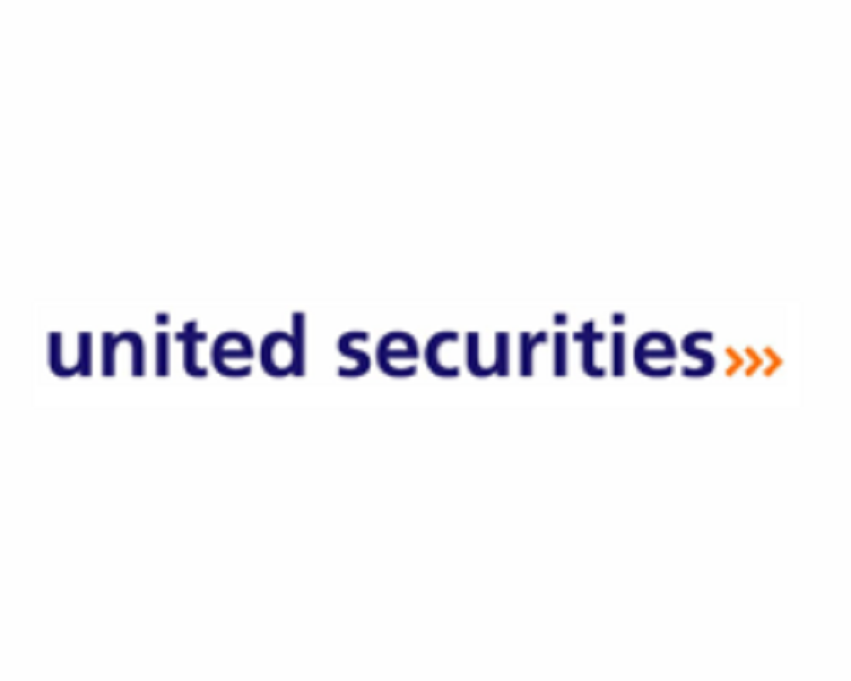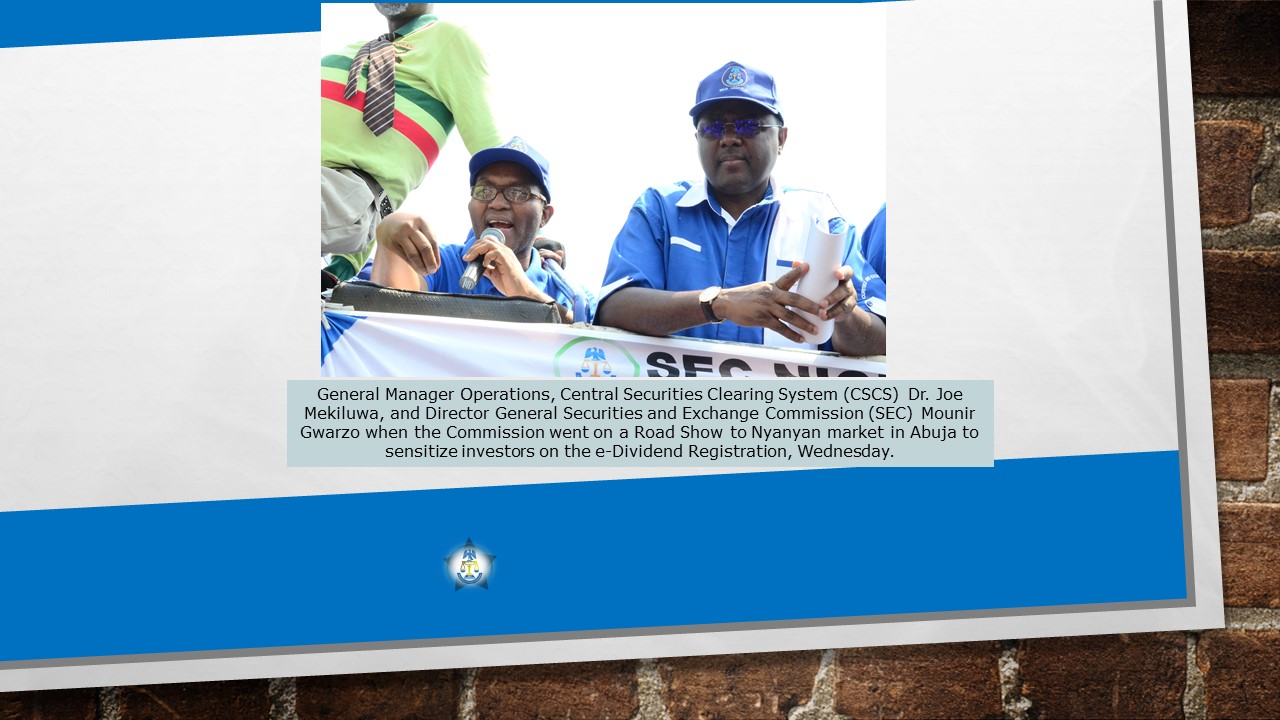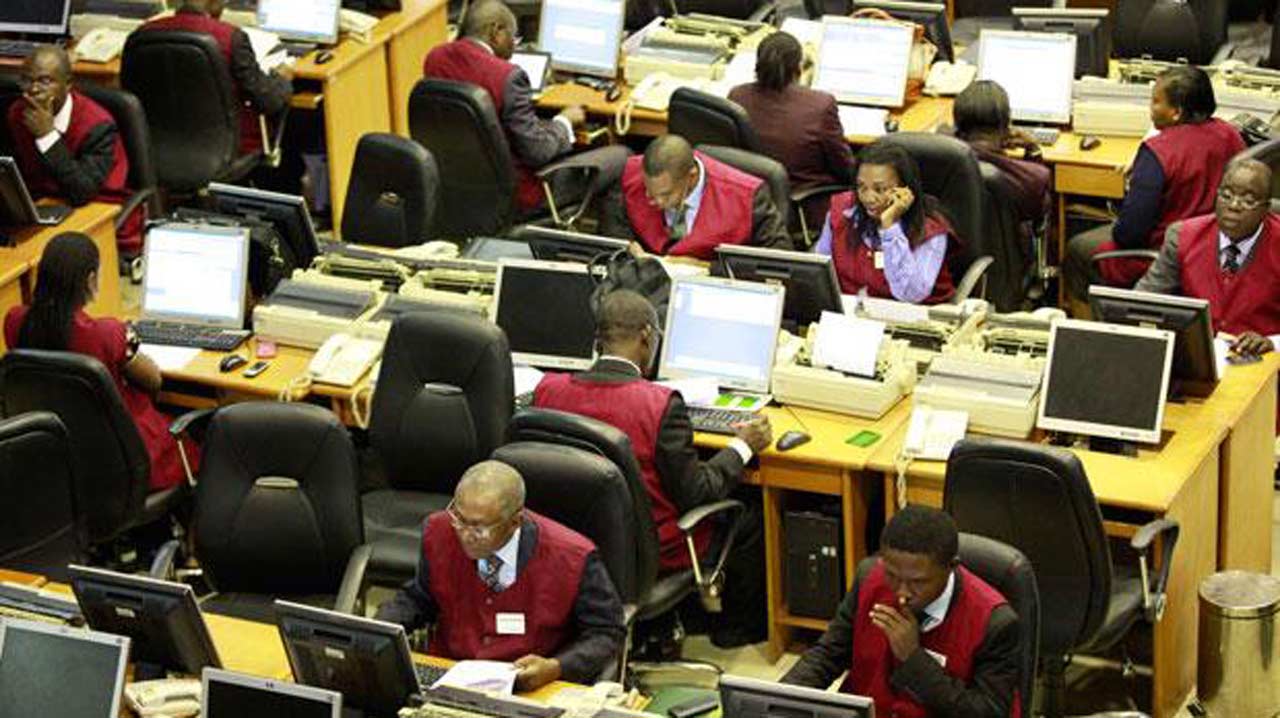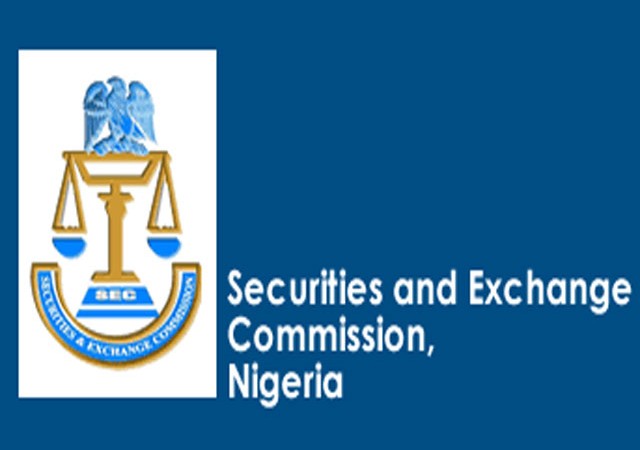Economy
E-Dividends Registration: Investors Rush to Beat Deadline
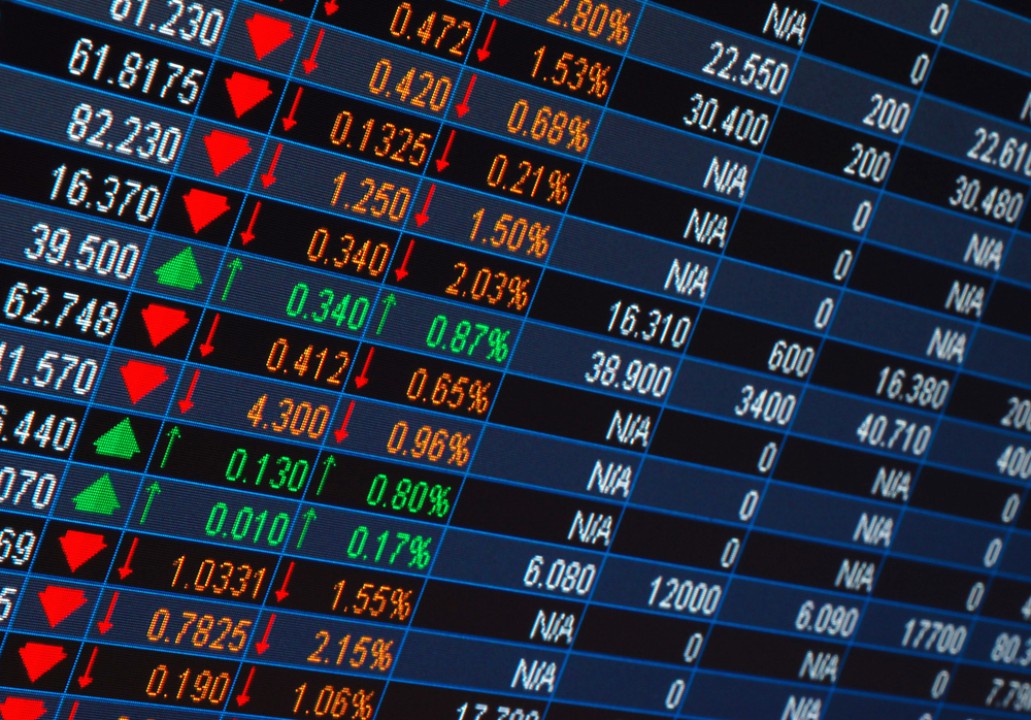
By Dipo Olowookere
There is last-minute rush by shareholders in the Nigerian capital market to register for free for the electronic dividend (e-dividend) payment system introduced by the Securities and Exchange Commission (SEC).
The regulatory agency fixed December 31, 2017 as deadline for the free registration of the e-dividend payment system.
Last month, while addressing capital market correspondents, the suspended Director General of SEC, Mr Mounir Gwarzo, had lamented the low level of enrolment for the e-dividend exercise, noting that the level of compliance had dropped lately.
He had said in August 2017, a total of 50,819 investors registered for the e-dividend, while it increased to 59,204 in September, but dropped to 37,153 in October.
Mr Gwarzo had warned that SEC would not extend the December 31, 2017 deadline for the registration despite pleas by stakeholders for an extension.
According to him, SEC has been underwriting the cost of the e-dividend and from next year, investors will have to pay N150 for the exercise.
“We realised that there is a slow pace in terms of the implementation of the e-dividend as in the last three-four months, there has not been appreciable increase in terms of number of people registering.
“By December 31, 2017, any Nigerian that does not register for e-dividend will now have to pay N150 for registration.
“We have been pursuing this initiative since last year and SEC has been underwriting the cost. The moment you start extending, people will think they have 100 years to do it.
“I don’t think we should keep on extending it, we want to keep our word on that December 31. Whoever that does not register should be able to pay the amount stipulated,” Mr Gwarzo had told newsmen.
At the first Capital Market Committee (CMC) meeting for 2017, Mr Gwarzo had disclosed that about 2.2 million investors in the capital market registered for the e-dividend payment system.
But with three working days left before the deadline, there is a huge rush for registration.
From January 1, 2018, investors in the capital market will no longer be able to receive their dividends physically, but would be paid directly into their bank accounts.
Business Post gathered that investors, who were yet to register for the exercise, are in a last-minute rush to key into the system.
However, some of them complained that the process of registering for the exercise has been cumbersome.
According to the Nation, a cross section of capital market stakeholders at the weekend showed increased activities on the registration. At the various registration points – banks, registrars and stockbrokers, officials confirmed that there have been noticeable increases in request for e-dividend.
Stakeholders, who spoke with The Nation at the weekend called on SEC to extend the e-dividend registration citing hitches that had slowed down the process of registration. They noted that given the importance of the e-dividend system to the stock market, SEC should allow the e-dividend and dividend warrants to run concurrently while improving enlightenment campaign for the e-dividend.
Shareholders United Front (SUF) National Coordinator, Mr Gbenga Idowu, said SEC should extend the deadline for the e-dividend registration to enable retail shareholders that are having difficulties with the registration to resolve the issues.
He urged SEC to widen its publicity campaign to other nooks and crannies of the country.
Standard Shareholders Association of Nigeria National President, Mr Godwin Anono, said SEC should allow open-ended registration for the e-dividend as part of its market development mandate.
He alleged that registrars were frustrating shareholders with unnecessary additional requirements for the e-dividend even when shareholders have provided their Biometric Verification Number (BVN).
According to him, many registrars were stalling the e-dividend registration because they are the main beneficiaries of the lopsided system where dividends are either delayed or categorised as unclaimed.
Constance Shareholders Association of Nigeria National President, Mallam Shehu Mikhail, said SEC should compel the three main stakeholders in the registration process – the Central Securities Clearing System, registrars and stockbroking firms to harmonise their data base using the Know-Your-Customer (KYC) information from the stockbroking firms.
SEC last year announced last June 30, as deadline for issuing physical dividend warrants but later extended it to December 31 to shareholders by quoted companies to tackle unclaimed dividends and mitigate the risks associated with warrants.
In November 2015, SEC launched the E-Dividend Mandate Management System (E-DMMS) with the Central Bank of Nigeria, Nigerian Interbank Settlement System (NIBSS) and other stakeholders. The E-DMMS is an E-dividend payment portal that ensures the payment of dividends into a shareholder’s account.
It is believed that these steps taken by the Commission would help to reduce the increase of unclaimed dividend which stood at N117 billion as at December 31, 2016. Of this figure, N86 billion was in the custody of the paying companies while N13.7 billion was with the registrars. From November 2015, when the SEC kicked off the campaign on e-dividends, about N42.2 billion has been paid to investors from the backlog of unclaimed dividends.
Economy
Tinubu Okays Extension of Ban on Raw Shea Nut Export by One Year

By Aduragbemi Omiyale
The ban on the export of raw shea nuts from Nigeria has been extended by one year by President Bola Tinubu.
A statement from the Special Adviser to the President on Information and Strategy, Mr Bayo Onanuga, on Wednesday disclosed that the ban is now till February 25, 2027.
It was emphasised that this decision underscores the administration’s commitment to advancing industrial development, strengthening domestic value addition, and supporting the objectives of the Renewed Hope Agenda.
The ban aims to deepen processing capacity within Nigeria, enhance livelihoods in shea-producing communities, and promote the growth of Nigerian exports anchored on value-added products, the statement noted.
To further these objectives, President Tinubu has authorised the two Ministers of the Federal Ministry of Industry, Trade and Investment, and the Presidential Food Security Coordination Unit (PFSCU), to coordinate the implementation of a unified, evidence-based national framework that aligns industrialisation, trade, and investment priorities across the shea nut value chain.
He also approved the adoption of an export framework established by the Nigerian Commodity Exchange (NCX) and the withdrawal of all waivers allowing the direct export of raw shea nuts.
The President directed that any excess supply of raw shea nuts should be exported exclusively through the NCX framework, in accordance with the approved guidelines.
Additionally, he directed the Federal Ministry of Finance to provide access to a dedicated NESS Support Window to enable the Federal Ministry of Industry, Trade and Investment to pilot a Livelihood Finance Mechanism to strengthen production and processing capacity.
Shea nuts, the oil-rich fruits from the shea tree common in the Savanna belt of Nigeria, are the raw material for shea butter, renowned for its moisturising, anti-inflammatory, and antioxidant properties. The extracted butter is a principal ingredient in cosmetics for skin and hair, as well as in edible cooking oil. The Federal Government encourages processing shea nuts into butter locally, as butter fetches between 10 and 20 times the price of the raw nuts.
The federal government said it remains committed to policies that promote inclusive growth, local manufacturing and position Nigeria as a competitive participant in global agricultural value chains.
Economy
NASD Bourse Rebounds as Unlisted Security Index Rises 1.27%

By Adedapo Adesanya
The NASD Over-the-Counter (OTC) Securities Exchange expanded for the first session this week by 1.27 per cent on Wednesday, February 25.
This lifted the NASD Unlisted Security Index (NSI) above 4,000 points, with a 50.45-point addition to close at 4,025.25 points compared with the previous day’s 3,974.80 points, as the market capitalisation added N30.19 billion to close at N2.408 trillion versus Tuesday’s N2.378 trillion.
At the trading session, FrieslandCampina Wamco Nigeria Plc grew by N5.00 to trade at N100.00 per share compared with the previous day’s N95.00 per share, Central Securities Clearing System (CSCS) Plc improved by N4.18 to sell at N70.00 per unit versus N65.82 per unit, and First Trust Mortgage Bank Plc increased by 14 Kobo to trade at N1.59 per share compared with the previous day’s N1.45 per share.
However, the share price of Geo-Fluids Plc depreciated by 27 Kobo at midweek to close at N3.27 per unit, in contrast to the N3.30 per unit it was transacted a day earlier.
At the midweek session, the volume of securities went down by 25.3 per cent to 8.7 million units from 11.6 million units, the value of securities decreased by 92.5 per cent to N80.7 million from N1.2 billion, and the number of deals slipped by 33.3 per cent to 32 deals from the preceding session’s 48 deals.
At the close of business, CSCS Plc remained the most traded stock by value on a year-to-date basis with 34.1 million units exchanged for N2.0 billion, trailed by Okitipupa Plc with 6.3 million units traded for N1.1 billion, and Geo-Fluids Plc with 122.0 million units valued at N478.0 million.
Resourcery Plc ended the trading session as the most traded stock by volume on a year-to-date basis with 1.05 billion units valued at N408.7 million, followed by Geo-Fluids Plc with 122.0 million units sold for N478.0 million, and CSCS Plc with 34.1 million units worth N2.0 billion.
Economy
Investors Lose N73bn as Bears Tighten Grip on Stock Exchange

By Dipo Olowookere
The bears consolidated their dominance on the Nigerian Exchange (NGX) Limited on Wednesday, inflicting an additional 0.09 per cent cut on the market.
At midweek, the market capitalisation of the domestic stock exchange went down by N73 billion to N124.754 trillion from the preceding day’s N124.827 trillion, and the All-Share Index (ASI) slipped by 114.32 points to 194,370.20 points from 194,484.52 points.
A look at the sectoral performance showed that only the consumer goods index closed in green, gaining 1.19 per cent due to buying pressure.
However, sustained profit-taking weakened the insurance space by 3.79 per cent, the banking index slumped by 2.07 per cent, the energy counter went down by 0.24 per cent, and the industrial goods sector shrank by 0.22 per cent.
Business Post reports that 25 equities ended on the gainers’ chart, and 54 equities finished on the losers’ table, representing a negative market breadth index and weak investor sentiment.
RT Briscoe lost 10.00 per cent to sell for N10.35, ABC Transport crashed by 10.00 per cent to N6.75, SAHCO depreciated by 9.98 per cent to N139.35, Haldane McCall gave up 9.93 per cent to trade at N3.99, and Vitafoam Nigeria decreased by 9.93 per cent to N112.50.
Conversely, Jaiz Bank gained 9.95 per cent to settle at N14.03, Okomu Oil appreciated by 9.93 per cent to N1,765.00, Trans-nationwide Express chalked up 9.77 per cent to close at N2.36, Fortis Global Insurance moved up by 9.72 per cent to 79 Kobo, and Champion Breweries rose by 5.39 per cent to N17.60.
Yesterday, 1.4 billion shares worth N46.2 billion were transacted in 70,222 deals compared with the 1.1 billion shares valued at N53.4 billion traded in 72,218 deals a day earlier, implying a rise in the trading volume by 27.27 per cent, and a decline in the trading value and number of deals by 13.48 per cent and 2.76 per cent, respectively.
Fortis Global Insurance ended the session as the busiest stock after trading 193.7 million units for N152.7 million, Zenith Bank transacted 120.7 million units worth N11.1 billion, Japaul exchanged 114.8 million units valued at N407.0 million, Ellah Lakes sold 98.4 million units worth N999.2 million, and Access Holdings traded 63.1 million units valued at N1.7 billion.
-

 Feature/OPED6 years ago
Feature/OPED6 years agoDavos was Different this year
-
Travel/Tourism10 years ago
Lagos Seals Western Lodge Hotel In Ikorodu
-

 Showbiz3 years ago
Showbiz3 years agoEstranged Lover Releases Videos of Empress Njamah Bathing
-

 Banking8 years ago
Banking8 years agoSort Codes of GTBank Branches in Nigeria
-

 Economy3 years ago
Economy3 years agoSubsidy Removal: CNG at N130 Per Litre Cheaper Than Petrol—IPMAN
-

 Banking3 years ago
Banking3 years agoSort Codes of UBA Branches in Nigeria
-

 Banking3 years ago
Banking3 years agoFirst Bank Announces Planned Downtime
-

 Sports3 years ago
Sports3 years agoHighest Paid Nigerian Footballer – How Much Do Nigerian Footballers Earn


